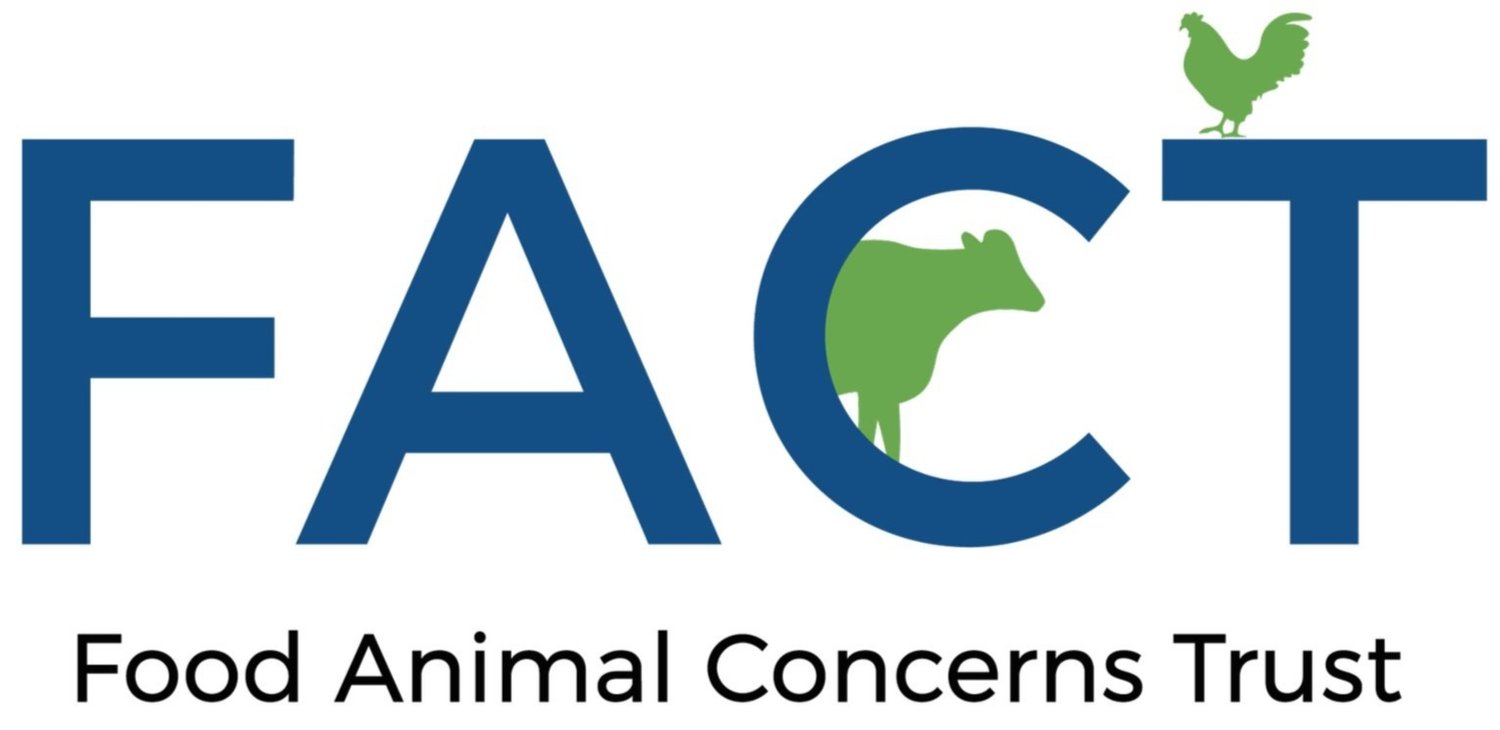Huge Victory for Public Health and FACT
FDA Moves Forward With Ban on Cancer-Causing Pig-Drug Carbadox
By Steve Roach and Madeleine Kleven, FACT’s Safe and Healthy Food Program Team
FACT has been working for almost twenty years to get the pig-feed drug, carbadox, banned because its use in pigs leads to cancer-causing residues in pork products, exposes farm and feed-plant workers to the dangerous drug, and ends up contaminating lakes and streams polluted with pig manure. That’s why we are delighted that the Food and Drug Administration (FDA) earlier this week announced they intended to ban the drug and revoked a failed method used to test pork for the cancer-causing residues. We now need to make sure the FDA actually goes through with the ban.
Everyone agrees that the pig drug carbadox causes cancer, but decades ago the FDA approved it as a feed additive to make pigs grow faster and to control the diarrhea that results from pulling baby pigs too quickly from their mothers and placing them in dirty, crowded pens. The drug maker explicitly markets the feed additive for times when the pigs are crowded stating it will “improve pig performance, even in limited space conditions.”
The FDA approved the drug because they believed the data provided by the drug maker showed no cancer-causing residues could be found in pork tissues within hours of the drug being administered. Drug residues are the remnants of a drug - either the drug itself or other chemicals that form when the drug is broken down by the animal’s body - that end up in edible animal tissues after an animal who received the drug is slaughtered for food. In 1998, the FDA approved a test for the residues to make sure people eating pork were not getting exposed. U.S. law prohibits feeding cancer-causing drugs to food-producing animals unless it has evaluated and approved this type of test. Soon after, new data from the drug maker showed the method did not work and that cancer-causing residues could be found even when the test said it was safe.
FACT began working on the drug at that time, trying to get the international food-safety body, Codex Alimentarius, to recommend the drug not be used in food-producing animals. We had to fight the U.S. government including the FDA but Codex Alimentarius in 2014 finally recommended carbadox not be used along with a bunch of other nasty drugs the U.S. had already banned.
We hoped the Codex ruling, would get the U.S. to act, and it did. In 2016, the FDA announced its intention to ban the drug, but then dragged the case out during the Trump administration. In 2016, FACT supported the FDA’s plan. In 2020, the FDA took another step and proposed to remove the testing method and made clear that the drug could not continue to be legally used without a test to show that dangerous residues were not making it to consumers. In early 2021, FDA held a public meeting about the residue testing method. FACT participated and was the only organization supporting FDA’s proposal to revoke the method. In 2022, FACT sent a letter signed by FACT and 16 other groups to the FDA Commissioner seeking a meeting to discuss moving forward with a ban. The Commissioner declined to meet with us. Just a few weeks ago we sent a petition to the Agency signed by our supporters. For those of you who signed, we really appreciate the support you gave on this and our other efforts.
Now this week, the FDA finally revoked the testing method, which means carbadox no longer meets the safety requirements for a cancer-causing animal drug. We hope this means that FDA will move swiftly forward with a ban since the limited protection from the flawed testing method is no longer there. You can be sure, FACT will be sending this message to the FDA.
